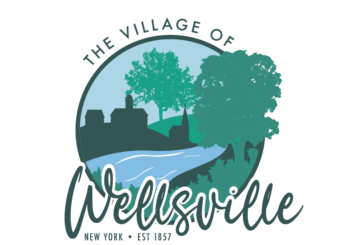Cannabis was legalized in New York State on April 1st of this year. The Marihuana Regulation and Taxation Act creates what most advocates consider a “gold standard” law among the sixteen states in the nation who have legalized the plant. The Office of Cannabis Management has launched its website providing New Yorkers with the latest information as regulations are being crafted. The agency motto is: TAKING BOLD ACTIONS TO ENCOURAGE SOCIAL JUSTICE, PUBLIC HEALTH AND ECONOMIC DEVELOPMENT IN THE LIVES OF ALL NEW YORKERS
Some of the most interesting parts of this new law :
Cannabis is legal in New York for adults 21 and older, but that doesn’t mean you can use it anywhere you want. Cannabis can be consumed in a private home or at a state-licensed on-site consumption site (coming soon). The smoking of cannabis is prohibited anywhere smoking tobacco is prohibited.
Adults 21 years of age or older will be allowed to buy and possess up to three ounces of cannabis flower and up to 24 grams of concentrated cannabis (oils, tincture, edibles, vapes, etc.). You will be able to buy cannabis only at a state licensed dispensary. You must present a valid ID proving you’re 21 or older. Cannabis at home should be stored securely and kept away from individuals under 21.

The MRTA adds cannabis to the Clean Indoor Air Act which establishes a baseline on where cannabis can be smoked or vaped.
A landlord cannot refuse to rent to a tenant who uses cannabis, but landlords, property owners and rental companies can still ban the use of cannabis on their premises.
If you’re traveling, hotel owners can ban the use and possession of cannabis on their properties, so you may not be able to use in a hotel room. Please note, that leaving the state or country with any cannabis product is against the law.
Since cannabis is still illegal under federal law, you can’t use on federal land, including national parks and national forests.
New Yorkers 21 years and older can grow up to six plants in their home for personal use (3 mature plants and 3 immature plants) and a maximum of twelve plants per household (6 mature plants and 6 immature plants), even if there are three or more adults over the age of 21 in the residence.
Please be aware the home cultivation of cannabis plants is not allowed immediately. Pursuant to the MRTA, the home cultivation of cannabis plants may only be permitted after the Office of Cannabis Management issues regulations governing home cultivation of cannabis, which must be no later than 18 months after the first adult-use retail sale.
- Cannabis plants must be kept in a secure place and not accessible to any person under 21.
- Home cultivated cannabis cannot be sold to anyone and is only intended for personal use.
- Please note, it is illegal to make cannabis hash oil or concentrates using substances like butane, propane, or alcohol with home grown cannabis.
- Local municipalities may enact and enforce regulations relating to home cultivation of cannabis provided, no municipality may completely ban or prohibit home cultivation.
- While it is legal for adults 21 years or older to consume cannabis, employers can still enforce policies that prohibit impairment on the job. Employers are not required to commit any act that would cause them to violate federal law or lose federal funding.
The MRTA establishes three taxes on adult-use cannabis. There is a tax imposed at the distributor tier based on the milligrams (mg) of total THC in the cannabis product. There are different rates of tax depending on the cannabis product form.
- Edibles (e.g. food and beverages) are taxed at $0.03 per mg of THC
- Concentrates (e.g. vaporization oil, wax, shatter, and resin) are taxed at $0.008 per mg of THC
- Cannabis flower (e.g. loose flower, pre-rolls, or shake) are taxed at $.005 per mg THC.

On the retail sale to the consumer, there are two taxes:
- 9% state excise tax
- 4% local excise tax
These taxes do not apply to medical cannabis.
All cannabis taxes would be deposited in the New York state cannabis revenue fund. Revenue covers reasonable costs to administer the program and implement the law. The remaining funding would be split three ways:
- 40 Percent to Education
- 40 Percent to Community Grants Reinvestment Fund
- 20 Percent to Drug Treatment and Public Education Fund




